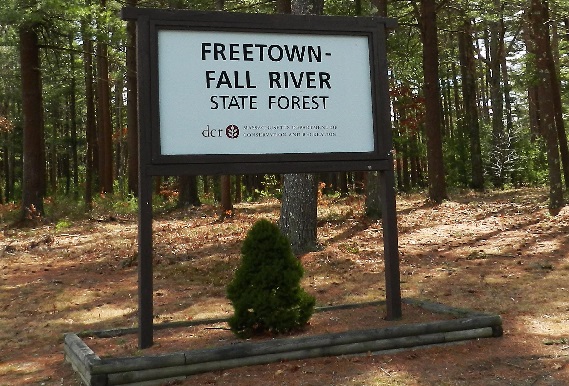Crime
Fall River man convicted in the murder of another city man at the State Forest granted parole with conditions

A Fall River man was recently granted parole with conditions concerning the murder of another man.
According to the Parole Board, on the morning of October 2, 1987, a man running with his dogs in the Freetown State Forest discovered the body of a male, who was later identified as Edward Cereto. The victim sustained gunshot wounds to his head, groin, and chest.
Pat Casey, a Fall River resident who had hired the victim to do odd jobs, reported the victim missing when he did not show up for work.
The investigation focused on 18-year-old Steven Costa, who was questioned by police. Costa initially claimed that he traveled to New Hampshire on the night of the murder and returned the next day. However, Costa could not provide any specific details concerning his travel plan, stating that he lacked any recollection of his activities on October 1, 1987. The authorities noted that the treads on the tires of Costa’s Pontiac Grand Prix matched the treads found near the victim’s body. After detectives confronted Costa about the implausibility of his story, he eventually provided a verbal and written statement implicating himself, Bruce Frank, and his cousins Michael and Kevin Costa in the murder.
Before the murder, Costa, Frank, and his cousins drank at a local bar. Then, Costa and his cousins ate and drank at China Royal. When the group returned to Costa’s car, which was parked outside of Frank’s house, the men noticed that the left rear tire was flat. After changing the tire, Costa walked to where the victim lived. He asked the victim if he knew who flattened the tire. The victim did not answer. Costa, who suspected that the victim was an informant, asked the victim if he was working with the police to help catch Costa for drug dealing. Again, the victim did not respond. Next, Costa and his cousins pushed and hit the victim repeatedly. Frank walked over to the men and announced that he would get his gun to scare the victim. Frank returned with a 410-gauge shotgun. The men forced the victim into the trunk of Costa’s car. The men drove 16 miles to the Freetown State Forest and removed the victim from the trunk. Frank fired 3-4 shots at the victim. He reloaded the shotgun, handed the shotgun to Kevin Costa and instructed him to shoot the victim. Kevin Costa shot the victim. Frank handed Michael Costa the shotgun and instructed Michael Costa to shoot the victim, but Michael Costa refused. Frank took the shotgun from Michael Costa, handed the shotgun to Steven Costa, and instructed him to “do it.” Costa shot the victim in the chest.
At trial, Costa claimed that his intoxication at the time of the killing prevented him from forming the necessary intent for first-degree murder.
On June 27, 1988, following a jury trial in Bristol Superior Court, Steven Costa was convicted of first-degree murder, specifically under theories of extreme atrocity or cruelty, and deliberate premeditation and kidnapping. With respect to the first-degree murder conviction, Costa was sentenced to life in prison without the possibility of parole. The court sentenced Costa to a concurrent 8–10-year sentence for kidnapping. He became parole eligible following the Supreme Judicial Court’s decision in Commonwealth v. Mattis, 493 Mass. 216 (2024), where the court held that sentencing individuals who were ages 18 through 20 at the time of the offense (emerging adults) to life without the possibility of parole is unconstitutional. As a result of the SJC’s decision, with regard to Costa’s first-degree murder conviction, he was re-sentenced to life with the possibility of parole after 15 years.
In issuing their decision, the Board noted that Costa is 30 years sober. He is currently in minimum security. Costa began to engage in rehabilitation and self-development prior to the SJC’s Mattis decision. Costa received a BA from Boston University in 2004. He has completed programs that addressed Cognitive Skills, Victim Empathy, Emotional Healing, Violence, Substance Abuse, and Vocational Skills training. Costa also worked as a companion for infirm and disabled incarcerated individuals and is considered low risk on the LSCMI. In rendering it’s decision, the Board considered factors associated with Mattis, as well as those speaking in support of, and in opposition to, parole. Costa requested to complete the Automotive Program prior to release. Costa’s release plan supports his needs. The Board notes that he has a significant support system.
Among the conditions of Costa’s release on parole include: CRJ for at least 90 days or LTRP; Report to assigned MA Parole Office on day of release; Waive work for two weeks; Electronic monitoring for duration of program completion; Supervise for drugs with testing in accordance with Agency policy; Supervise for liquor abstinence with testing in accordance with Agency policy; Must have mental health counseling for adjustment; No contact with victim(s)’ family; AA at least 3 times per week.




